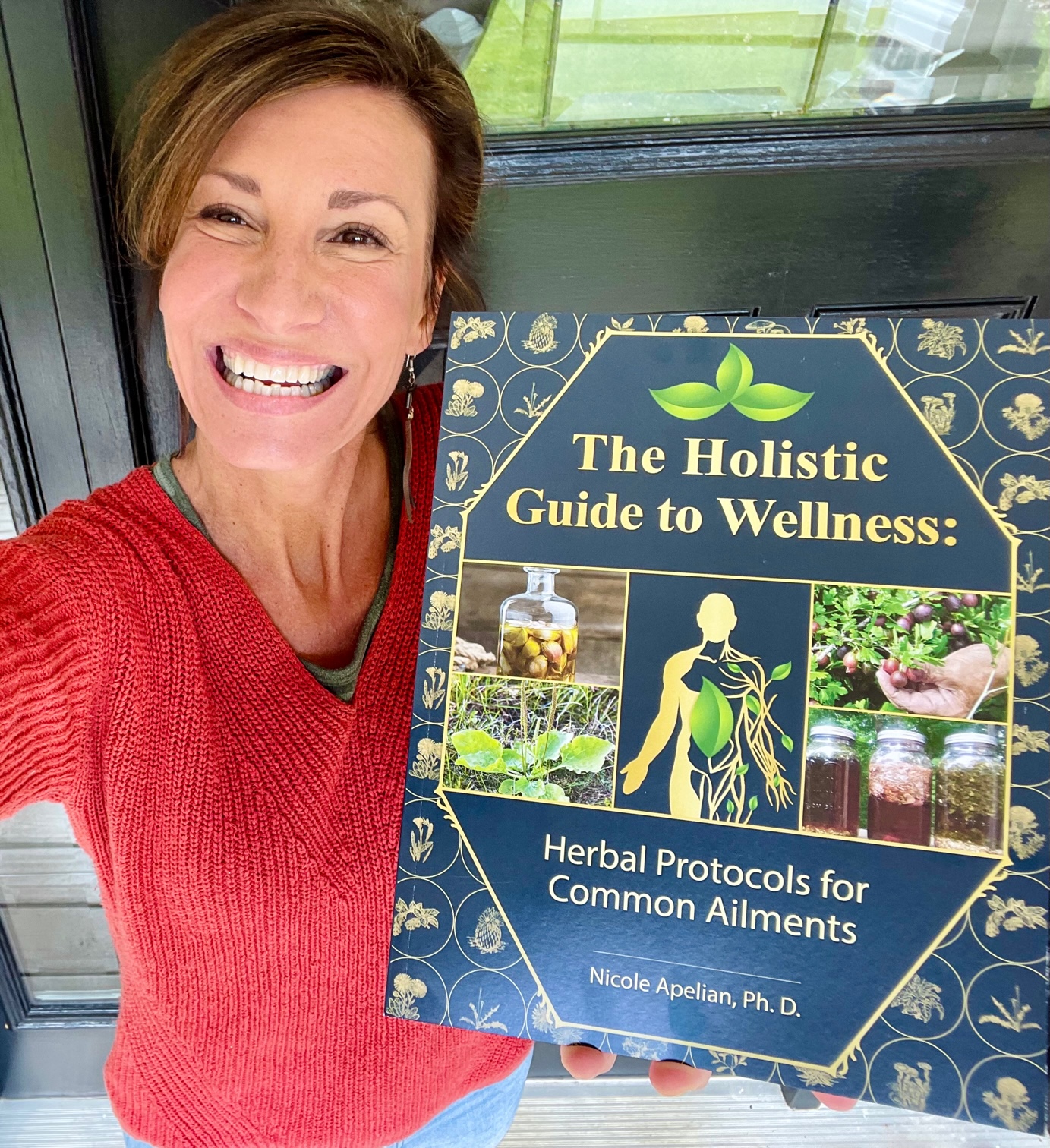How The Thyroid Influences Cognitive Health & Mood
For those with an underactive thyroid, you may not realize it impacts much more than your physical health. Research has shown hypothyroidism significantly affects your mental health too and can trigger depression, anxiety, brain fog, forgetfulness, moodiness, and mania. In severe cases, it can also lead to hallucinations, paranoia, and delusions. Addressing hypothyroidism is crucial to avoid not only the negative physical effects but also to ensure your mental health is protected.
What is hypothyroidism?
A condition where the thyroid gland does not produce enough thyroid hormones, hypothyroidism can be difficult to detect in the early stages as symptoms typically develop over several years. These include:4,5,6
- Fatigue
- Unexplained weight gain
- Sensitivity to cold
- Constipation
- Dry skin
- Puffy face
- Coarse hair and skin
- Muscle weakness and tenderness
- Hair loss
- Slowed heart rate
- Brain fog and memory issues
- Pain and stiffness of the joints
People often think these symptoms are simply normal aging so they may not immediately recognize a thyroid issue as the underlying cause. This is why getting a blood test to measure the levels of your thyroid hormones is important. Similarly, Hashimoto thyroiditis is an autoimmune disorder that also causes hypothyroidism as it attacks the thyroid gland and lowers the production of thyroid hormones. Please see this post for more information about this increasingly common autoimmune disease.
Mental Health Complications
Since one of the hallmark symptoms of hypothyroidism is fatigue, we can mistake this lack of energy as the root cause of our depression. But the influence of the condition on your mental health is much more significant.
According to a 2022 review, hypothyroidism is one of the most common causes of treatment-resistant depression.1 It can also lead to an increased risk of developing anxiety, bipolar disorder, schizophrenia, and, in severe cases, a condition called myxedema psychosis. This involves delusions, paranoia, severe depression, cognitive impairment, and even hallucinations.
Additionally, thyroid hormones influence neurotransmitters such as serotonin, dopamine, and norepinephrine. When there aren’t enough thyroid hormones circulating, it can create an imbalance of these neurotransmitters — leading to increased anxiety, depression, and dysphoria.7 Low levels of thyroid hormones also slow down the metabolism of the brain and cerebral blood flow, which results in decreased cognitive function as the brain isn’t able to utilize energy efficiently and the delivery of oxygen and nutrients is impaired.2,3

Addressing Hypothyroidism With Diet & Lifestyle
If you have hypothyroidism, it is important to consume an anti-inflammatory, whole-food diet rich in brightly colored fruits and vegetables, wild-caught fish, nuts, legumes, and gluten-free grains. The Green Mediterranean Diet is a good place to start.
Except in the case of Hashimoto’s, including iodine-rich seaweed can be helpful for thyroid hormone production if there is a deficiency. Probiotic foods such as kimchi, kombucha, sauerkraut, yogurt, and kefir with active cultures encourage gut health, which is closely tied to the proper functioning of the thyroid as well as lowering inflammation.
Foods to avoid include gluten, most dairy (except for those mentioned above), processed or fried foods, canola and vegetable oils, sugar, caffeine, and alcohol.
Managing stress and getting enough quality rest are also crucial for supporting thyroid health. If you are under chronic stress the adrenal glands release too much cortisol, which in turn damages the thyroid. Stress is also a trigger for autoimmune diseases — including Hashimoto’s. What’s more, it promotes a sluggish metabolism that further encourages fatigue and can lead to brain fog, poor cognitive function, and depression.
Getting a solid eight hours of sleep each night is optimal for the healthy function of your thyroid and to reduce overall stress. Establishing a good bedtime routine, such as avoiding blue light from devices in the evening, taking a warm bath, aromatherapy, and utilizing my highly-effective Sleep Blend all help encourage quality nighttime rest.
Helpful Herbal Remedies
Herbal remedies are a powerful ally in supporting thyroid health. As I wrote in “How To Know If You Have a Thyroid Condition — And What To Do About It”:
“Cordyceps Mushroom has been shown to be beneficial for both hypothyroidism and hyperthyroidism. It improves adrenal function, helps restore thyroid balance by increasing helper T cells and cytotoxic T cells, and helps lower levels of thyroid antibodies in both Hashimoto’s and Graves’ patients. Cordyceps is also rich in selenium, which has been shown to reduce thyroid antibody levels.”
Reishi is another exceptional medicinal mushroom for thyroid health as it is an adaptogen and helps counteract the negative effects of stress — such as inflammation, fatigue, and hormonal imbalance. Reishi is also neuroprotective and helps treat leaky gut, which is often associated with thyroid issues.
It is important to note that medicinal mushrooms require dual extraction to access the full spectrum of beneficial compounds — simply drinking mushroom coffee or taking a powdered supplement isn’t enough. You can learn more about why our tinctures are the gold standard in medicinal herbal extracts here.
Diving Deeper into Natural Health
For a full hypothyroid protocol — including supplements, additional herbs, and lifestyle tips, my Holistic Guide to Wellness: Herbal Protocols for Common Ailments is an outstanding resource. Not only does it provide comprehensive information on how to manage thyroid health naturally, but it also covers an additional forty-four health concerns — from autoimmunity and dementia to Lyme disease, menopause, COPD, and more.
Together with the help of MDs, naturopathic physicians, and scientists, I have compiled these easy-to-follow, science-backed protocols to improve your quality of life. If you would like to take charge of your family’s health using a natural approach, this is the book for you!
THANK YOU FOR THIS BOOK!
“Thank you so much for the time you put into your books, and sharing your knowledge with the public. I have just received The Holistic Guide to Wellness. Your writing is so much better than books I have read in the past on this topic. Thank you again for sharing your knowledge and caring for others’ well- being. God bless you.” – Vicky E.
Interested in learning more? Tap here and pick up your copy today!
Nicole Apelian
Nicole’s Apothecary Products in this Post
References
- Nuguru, S. P., Rachakonda, S., Sripathi, S., Khan, M. I., Patel, N., & Meda, R. T. (2022). Hypothyroidism and Depression: A Narrative Review. Cureus, 14(8), e28201. https://doi.org/10.7759/cureus.28201
- Samuels M. H. (2014). Psychiatric and cognitive manifestations of hypothyroidism. Current opinion in endocrinology, diabetes, and obesity, 21(5), 377–383. https://doi.org/10.1097/MED.0000000000000089
- “Does Hypothyroidism Affect Your Mental Health?” by Kelly Wood, MD, Healthline, June 25, 2024. https://www.healthline.com/health/hypothyroidism-and-mental-health
- Samuels MH. Psychiatric and cognitive manifestations of hypothyroidism. Curr Opin Endocrinol Diabetes Obes. 2014;21(5):377-83. doi:10.1097/MED.0000000000000089
- Safer JD. Thyroid hormone action on skin. Dermatoendocrinol. 2011;3(3):211-5. doi:10.4161/derm.3.3.17027
- “Hypothyroidism” American Thyroid Association. https://www.thyroid.org/hypothyroidism/
- Lekurwale, V., Acharya, S., Shukla, S., & Kumar, S. (2023). Neuropsychiatric Manifestations of Thyroid Diseases. Cureus, 15(1), e33987. https://doi.org/10.7759/cureus.33987








